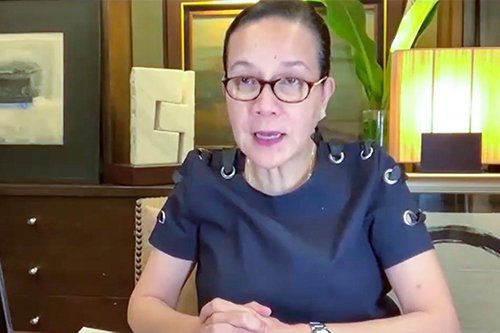The Senate committee on public services headed by Sen. Grace Poe will scrutinize the policy of telecommunications companies imposing expiry dates on call, text, and data cards and forfeiting load credits.

Poe said she will create a technical working group that will examine the details of the bills seeking removal of the load expiration and take into account the position of the telcos and other stakeholders to come up with a balanced solution.
“We want to address the situation where the money used by mobile subscribers to purchase their prepaid credits are not being utilized in its entirety, to the detriment of the consuming public. In short, sa kasalukuyang set-up, nalulugi ang mga Pilipino,” Poe said on Wednesday, January 27, during the hearing conducted jointly with the trade, commerce and entrepreneurship panel.
“It is very good for the consumers to have assurance that their load will not expire. But, we should also consider that it might be untenable later on to manage a database full of registered numbers, including those that have been inactive,” she added.
Senate Bill Nos. 25, 109, 176, 236, 340, 388 and 693 on the mandatory registration of subscriber identity module (SIM) cards and Senate Bill Nos. 365 and 1880 on non-expiration of load credits and data have been referred to Poe’s panel.
“Ang bagal at ang mahal na nga ng Internet, nag-e-expire pa. We heard of instances when the data allocation of many subscribers expires in just one or three days,” Poe added.
The senator said consumers who have paid in advance for their cellphone load should have the leeway when to consume it to give them the full value for their money.
Senate Bill No. 1880 requires a rollover data system for the subscribers of all internet service providers. The unused data allocation will not expire but will carry over to the succeeding months until the year’s end.
Despite being one of the slowest, a 2020 World Bank report found that telcos in the country are charging the fourth highest cost in Asean at around P315 per 500 megabytes of prepaid mobile connection — close to the Internet cost in Singapore and Thailand where speeds are faster.
The public hearing also focused on bills seeking the mandatory registration of SIM cards as a way to curb crime proliferation in the country.
Citing the 2019 National ICT Household Survey of the Department of Information and Communications Technology, Poe said that out of the 32,915 respondents all over the country, a total of 6,840 individuals have said they have been victimized by text scams or fraud by unregistered mobile numbers.
“Kung susumahin, isa sa limang tao ang nabibiktima gamit ang SIM cards dito sa ating bansa. Ito marahil ang dahilan kung bakit 155 bansa sa buong mundo ang may SIM card registration laws,” she stressed.
Representatives from the government, telecommunications companies, and consumer groups present in the hearing gave their position on the pending bills.
Poe asked the stakeholders to submit formal position papers on the SIM card registration proposal to aid the panel in coming up with recommendations.
Poe pointed out the need to strike a balance between protecting the individual’s privacy and ensuring safety against attempts to abuse the technology.
“There are more SIM card registrants than voters. The repository of information will be crucial to the success of the implementation should we have one,” Poe said.




